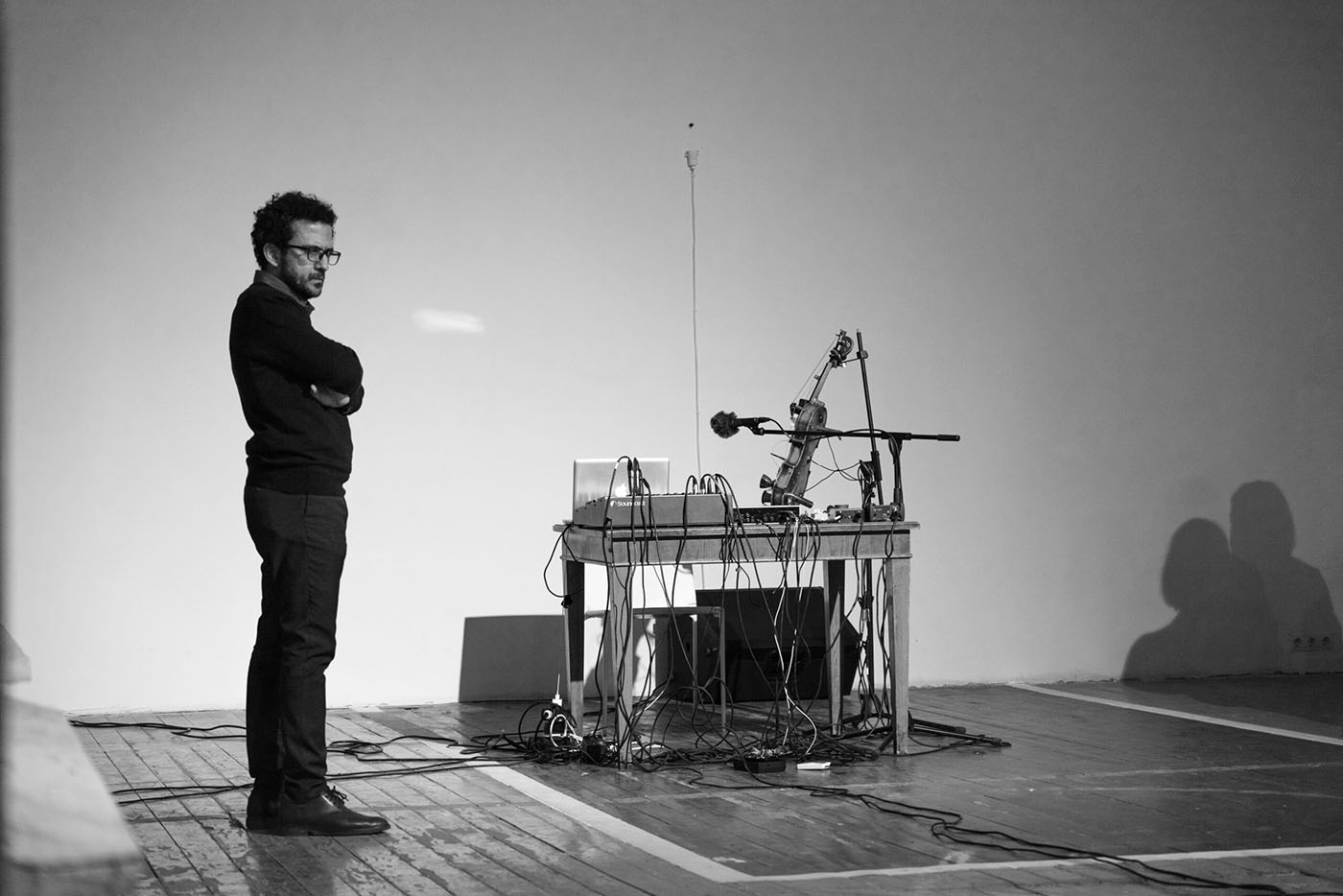Composer, sound artist and researcher Hardi Kurda is founder of Space21, a music festival operating from his hometown, Slemani (Sulaymaniyyah), in Iraqi Kurdistan. Kurda is at the heart of the Archive Khanah: Sounds from Iraq project, a community-based archive celebrating Iraq’s musical and sonic diversity, financially supported by the Arab Fund for Arts and Culture Fund (AFAC). To demonstrate connections between the musical traditions of Iraq, it digitizes selected records, has created an online interactive archival map, and may yet host a physical exhibition.
Melissa Chemam
Hardi Kurda has a nomadic spirit. Whether forced or chosen, his displacements have always been a source of education to him, of the sort that most of the time has offered him the opportunity of growth and even joy.
Forced to leave his native Slemani, in northern Iraq’s Kurdistan region, in 2002, due to the approaching war, he fled to Europe. On several occasions and for lengthy stretches, he had to suspend his lifelong artistic project, which is centered on researching and cataloging Iraqi music and sound, but he never gave up.
“When the war started, I had to stop, but then I carried on in Sweden, and after that the project stopped again,” he tells me over Zoom, after affirming his love of travel and having already talked to me about his multiple homelands. “I started linking music and research around 2010, to create this database project in Kurdistan, in northern Iraq, including information about artists in the country. Then I moved to to London five years ago, for my research.”
Kurda is now a PhD candidate at Goldsmiths, University of London, and a visiting lecturer on Interaction Design at Winchester University.
His unique and extensive archiving project, Archive Khanah: Sounds from Iraq, came about due to a desire to preserve the sounds of his first home, and to interact with music producers, musicians, and their audiences. When talking about the archive, for which he has received a grant from the AFAC, his face brightens.
It’s about sound and found objects, but it’s also about displacement, how I moved between places, about the areas of music disciplines, different elements of the music. I started in my hometown, Slemani. Sound archiving always interested me, and I was trying to bring another view of the whole history of Iraq, about sound especially. Then when I had to leave, I looked for funding, even from the British library, but it was really hard.
He persevered, going back to Iraqi Kurdistan, gathering information about Iraqi singers, as well as their origins and the dates of their recordings and performances. He collected songs from Slemani, Kirkuk, and Baghdad, and eventually secured financing from the AFAC. Along the way, Kurda figured out how to link technology and music.
I wanted people to be able to submit their songs for us to collect, and the story of the sounds too. Then I wanted to find how to interact with these archives, how to connect them with the audience, because [people in] the audience too often just have to listen, they’re not involved in a creative process. I wanted to create something to change that. This platform is still in a process. It will become a website, and also a mobile application, available for Androids and Apple phones. I also want to try to create a GPS-based application for the people to travel to the city and listen to the sound, like a sound “Google map.” I’m interested in what is a very important part of the project: the interactivity. I’m in discussion with technicians to make the people carry on using the app as long as possible, to make it an interactive one. We have a very good Internet in Iraq, contrary to what some people imagine, it’s used even by older people. I wanted to include them, because they are the ones with the knowledge. We need to make the app simple and interactive.
Kurda asked the oldest music shop owner in Slemani for his help. He discovered that this man had many songs from singers Kurda hadn’t heard of. “There was no way for the audience to hear them until we started collecting them,” he explains.
The next step for Kurda is to add maps of different parts of Iraq to the Archive Khanah: Sounds from Iraq website, so as to provide graphics of the sort that will help Iraqis abroad to reconnect with their country. This is something that means a lot to him, as an expat Iraqi and recent emigrant from his homeland. As he explains:
I’m now exploring this global issue, yes, around immigration, about the people who came to Europe illegally to save their lives — like I did myself, in a container, in which I stayed for four days. That is considered a crime, while for instance selling European arms to our governments is legal. I’m now questioning what is legal and what isn’t. These stories are important. Everything I create or archive is related to my journey.
Despite such harrowing experiences, Kurda, instead of despairing, pursues his artistic, creative, and innovative ventures undaunted. His love for Iraq has not dimmed; indeed, he’s constantly thinking about going back. For now, though, he’s focused on his children, who are being schooled in England. “I’m motivated because I want to go home,” he says. “I can do more when I’m on the ground, that’s for sure, and I wish I could move back permanently, but I have small kids and it’s hard to find them a school in Iraq; it would be very expensive.”
And so he remains in England, even as his music and archival project serve not only to keep him going, but also to give him the tools to participate in building a future for Iraq, once he determines that it is time for him to return.
To hear more from Hardi Kurda, follow his YouTube channel or his Space21 festival’s Bandcamp page.




